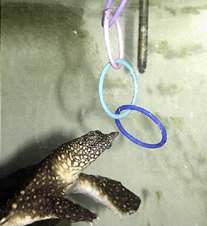Really?! You might ask what relevance such a ludicrous statement has on a veterinary website, but my latest article for Veterinary Practice comes to you in October, which is just about my favourite month of the year – not because of the evenings closing in or the leaves turning golden brown and falling all around. No, seasonally I must admit that I much prefer spring. But October brings a fresh bloom of new students entering vet school and that is quite as exciting to me as any spring emergence of bright new flowers.
So, as September morphs into October, I will have had the delight of welcoming seven new students into the two Cambridge colleges for which I am director of studies, St John’s and Homerton, who will join about 60 others in the first year of the Cambridge veterinary course. One thing that I think really makes Cambridge special is the one-to-one link between each student and the teaching staff at their college. For the vets, it is also the small class size of 65 to 70 students, rather than 200 to 350 as is the case elsewhere, that allows such close contact.
From day one I’ll meet with “my” seven students each week and discuss how the things they are learning in physiology and biochemistry link with clinical veterinary medicine. This is important as the lectures they will have are from top-flight scientists but without much veterinary insight. However, I can show them how those first few lectures on the basic sciences – blood glucose regulation in biochemistry, for example – are key in understanding diabetes in dogs and cats.
Of course, it’s not just me. Other veterinary directors of study in other colleges are doing just the same thing to link the science that the students are learning with its relevance to veterinary medicine.
“Just a moment though,” you say. “How does that fit with the title of this article – that education is spelt L-O-V-E?” The great thing about these vet students is that they will, after six years of study, be vets. Where’s the evidence for that, you might ask? Well, of the students for whom I’ve been director of studies since 1996, and that’s well over 70 students, only three haven’t ended up as vets.
If I were a lecturer in chemistry or geography, I wonder how many of my students would end up as research chemists or as full-time geographers? Very few, I’d venture to guess. Yet the wonderful thing about teaching a vocational subject such as veterinary medicine is that the vast majority of my students will join our wonderful profession. I love keeping in touch with them and finding out how they are doing. But does that explain why I put the word “love” into the equation?
There’s something very special about helping students become vets: in enthusing them in what is a taxing course, ensuring that their extramural studies are as beneficial as they can be and encouraging them to apply for college funding for travel, to broaden their veterinary experience and their opportunities in life more generally. Being there when things go wrong – when exams don’t go as well as they had hoped or even when they are injured or ill – is a key part of my work, as is going to plays or concerts they are playing in when, for the first time, mum and dad aren’t there to congratulate them afterwards. What a privilege it is to be able to be in that position.
This I guess you could call love. A love that welcomes students in on their first day at university and supports them throughout their course. A love that is excited to see them go into the world of veterinary practice when their six years are up. A love that delights in being able to give them a warm recommendation for that first job and then follow them on Instagram to see how they are getting on.
Truth be told, the world of tertiary education can be full of hurdles and pitfalls, quite as much for teaching staff as for students: with committees to sit through just as much as to sit on, exam scripts to set and mark, reports to read and research to undertake. But it’s the students that keep me going. It’s so exciting to receive them each October and help them enjoy their whole university experience as much as they possibly can.
Bring on the start of term!










